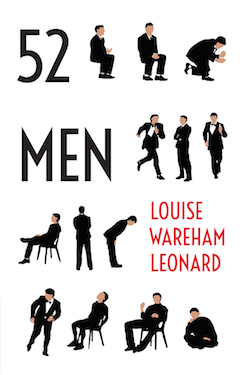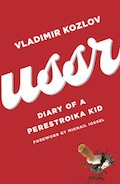
28
Joel is from Queens and a graphic designer. He has a loft apartment in Soho. In this apartment is a swing. You can swing from the light of the windows on the east side toward the darkness on the west. Joel makes me cards: homemade carefully wrought works-of-art cards. Joel gives me a photograph of two trees leaning toward each other. He writes on a card: You are the light at the end of the tunnel. Not long after this, he changes his mind. “You are angry at me,” he says, “You are frequently angry and I do not know why.” For my thirty-second birthday, he gives me a bicycle, a red Villager cruiser. We go biking in the afternoon through the streets of New York. We bike to the Lower East Side and across the Brooklyn Bridge. He is happy with me. This happiness, however, does not last. Joel decides he no longer wants to see me. “You are too angry,” he says. “You are angry for some reason I don’t know. I don’t cause your anger. Something does, but it is not me and I can’t heal it.”
29
Paul is a waiter and also an actor. He takes me home and hands me a lance. He is a jouster. He jousts with me. “I want to joust with you,” he tells me, “so you always remember.”
30
I meet Bob at a dinner party on Gansevoort Street. I have come late to the party so as to miss dinner. I can’t afford dinner, so come for coffee. Bob notices this. Bob comments on it. Bob is impressed, he says. He is a lawyer, Insurance Coverage and Litigation. He lives on 35th Street. He has a house in Rhinebeck. He drives me there and it is spring. It is April but not summer. We lie back on his sun warmed bed. It is blue, and also quiet. He hardly touches me. This is how seriously he takes me. He tells me he is serious and he acts serious. He takes me to his parents’ house in Greenwich, Connecticut. They are in their early eighties, full of plenitude. We walk by their ocean and “you have the body of a nineteen-year-old,” he says, “I love that; I want to marry that.” “That?” I repeat. “Yes,” he smiles, “That.” Something in my chest starts to rise. Something catches my lungs so they stop moving. “What if I don’t always have the body of a nineteen-year-old?” I ask. “But you plan to,” he says. “Don’t you?” I weary, sometimes, of how easy men are—both to please and to lose. “Oh, for God’s sake,” I say. “Oh,” Bob says, pulling back from me, groping for his car keys. I have an urge to slap him. I do not slap him, but my body wants to. As much as he is afraid of me, as much as that and more, I despise him for his fear.
31
Lou is in a hot tub, alone me with me at the Chelsea Piers, the most expensive club I belong to. It has windows on the Hudson. It has velvet light. He stands up to let the water flow over him, and I see his package. I am embarrassed by this. I know his package has been the subject of attention. He sees me looking, but I look away. Always it is this way, with the famous. Pretending not to know them when “Sad Song” fashioned all my dreams. “Oh,” I say to him finally, so he squints at me, hoping I haven’t spoken. “You know my brother.” His eyes are the color and depth of wall painted black. “Who is your brother?” he asks.
His voice is very deep. It is the deep of the mad, of the man I always try to make love me, the one who does finally love me, until I realize his love is not worth as much as I’d thought. “Ben Galogly,” I say. “Ben.” His eyes light up with a fascinated horror, the way they always do for Ben, though not so much for me. “Congratulations,” he says.
36
Timothy is a favorite. He lives on Prince Street and rides a Moto Guzzi motorbike and helps the poor in Bushwick. In his wallet, he keeps a poem of mine, about Jesus, and rage, but mostly rage. We go to the Odeon, and Pravda. His favorite bird is the sparrow. When I leave town, to work upstate, he gives me the Audubon Field Guild to Northeastern Trees.
We meet at the Candlelight, between towns, in Massachusetts. They have electric candles along the window sills. He buys me hiking boots. He washes my car and fits it for emergencies. We hike the Appalachian Trail. We sleep on mountains. We follow creeks and mushrooms. He is broad shouldered and tall. He wears shorts and thermal tops. He wears red hiking socks and a Tilley hat. I am thirty-six and would like a baby. “A baby,” he repeats, in his apartment, as if this is a dirty word.
I never go back, except to pick up my things. I find a list of pros and cons about me. Pro: Great sex. A good person. Con: Needy, both emotionally and financially. In six months, he impregnates a soap actress. They marry and have two children.

- Louise Wareham Leonard writes with such rare intensity, rage, sadness and ferocious love, she lights up a world where expectancies and experiences of desire, sexuality and authenticity are redefined and exploded. Both devastating and, often, laugh-out-loud funny, her work has a savage purity—forgiving both all and nothing—demanding truth, wresting us from darkness to the ethereal, offering both solace and change. Born in New Zealand, she moved to Manhattan at age twelve, attended Columbia College and has received, amongst other awards, the James Jones Literary Society First Novel Award. She lives in upstate New York.
Copyright © 2015 by Louise Wareham Leonard from 52 Men. Reprinted by permission of Red Hen Press.







